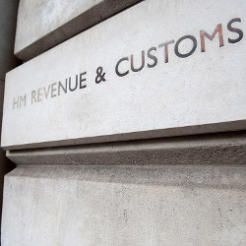Sector bodies are calling for the government to make a full impact assessment of gift aid donor benefit rules over concerns that the “highly complex” rules could deter small charities from claiming gift aid.
The call was made in a joint response to HMRC's gift aid donor benefits consultation from the Charity Finance Group, Institute of Fundraising, National Council for Voluntary Organisations, and the Small Charities Coalition.
Donor benefit rules govern how much benefit charities can give donors before they lose the right to claim gift aid. The government is attempting to simplify the rules, but the consultation response was critical of several proposals, saying they were concerned that some proposals would impact “on the integrity of the gift aid system”.
They said charities run by groups from disadvantaged backgrounds could struggle to understand what the rules meant.
The joint response said that before any changes are finalised, the umbrella bodies would urge the government to make a full impact assessment to ensure that the rules do not disadvantage certain types of organisations.
“The rules are highly complex, and there are concerns that this could hinder charities which come from disadvantaged backgrounds,” the response said.
“We understand, and support, the aim of the gift aid donor benefits system," the response said. "We believe that charities should be able to choose to provide proportionate benefits – most typically a ‘thank you’ for supporters – where they are confident that this will go towards building a strong relationship with that supporter to the cause.
"It is right that the gift aid system recognises and allows for these benefits. However, we also agree that there must be safeguards to prevent these rules from being abused and to protect the reputation and trust in the charity sector.”
They called for a balance to be struck between safeguards which maintain the integrity of gift aid and regulations which create unnecessary burdens for charities and lead to fewer organisations from claiming gift aid.
Responses to proposals
The umbrella bodies have said that they disagree with a number of proposals made in the consultation document.
The government consultation document had said that the current monetary thresholds that are used to determine the amount of benefit that can be given for a gift aided donation (the relevant value test) are confusing.
The document proposes removing the monetary thresholds altogether, but the response document disputed the government assertion that this would be a “significant simplification”.
As most charities do not currently calculate the level of benefits they provide for donors it would require a significant overhaul of charity systems.
“This would significantly disadvantage small charities which do not have the resources to create new processes and procedures to monitor levels of benefits and then take those away from their gift aid claims” the response said. “This would mark an additional level of complication to the gift aid claiming process for organisations.”
Extra statutory concession
On a proposal on extra statutory concessions, they said that the requirement on charities to proactively inform donors of the amount of gift aid claimed on split payment donations would impose significant extra burdens on charities and could lead to confusion for donors.
However they recommended that charities should have a “requirement to inform donors, such as higher rate donors, about the amount of gift aid claimed on their donations upon request”.
They disagreed with the proposal to remove liftetime benefits, which prescribes that – for the purposes of gift aid – the value of lifetime benefits only needs to be included in the total value of benefit given to a donor for the first ten years.
They said that although responses to the call for evidence responses hadn’t mention these benefits, that did not mean they were not used, nor that their removal would be a simplification.
The bodies endorsed a proposal to “disregard for low value benefits”, believing it would beneficial for charities, particularly small organisations.
They also said that they are “disappointed that one major area of reform has not been considered – valuing the cost of benefits”.
They said that conversations with charities have made it clear that calculating the cost of benefits based on their value to the donor is very complicated and particularly difficult where you have unique or bespoke items. It said this is a barrier to smaller organisations that may wish to provide bespoke benefits to their donors in order to build better relationships.
The sector bodies recommended that the government changes the valuation process from the value to the donor to cost to the charity. They say this will be much simpler to calculate and avoid any confusion, adding that it will also be an easier process for HMRC to monitor and as a consequence will create fewer opportunities for abuse.









